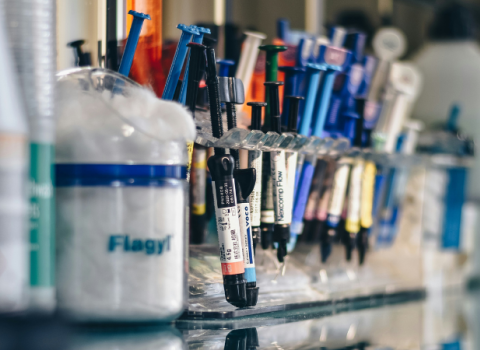An international team of researchers led by the University of East Anglia (UEA) have developed a new kind of endoscope to aid the early detection and diagnosis of inflammatory bowel disease.
The Confocal Laser Endomicroscope (CLE) contains a powerful microscope which allows clinicians to view the bacteria that are thought to trigger diseases of the bowel such as Crohn’s disease and ulcerative colitis.
“Bacteria within the wall of the gut are believed to play an important role in the development of inflammatory bowel disease and we now have a powerful new tool for viewing this bacteria during routine colonoscopy,” said Alastair Watson of the University of East Anglia (UEA), who led the work in partnership with researchers in France and Germany.
“This new technique will allow the rapid identification of patients at risk or in the early stages of this common but distressing group of diseases.”
The causes of Crohn’s disease and ulcerative colitis are still not completely understood but bacteria within the mucous membrane of the gut are thought to play a role. The current method of taking biopsies prevents observation of the exact location of bacteria and of the way it interacts with the mucous membrane. The new endomicroscopy technique uses a flourescent dye to highlight the bacteria, allowing these processes to be viewed at a sub-cellular level during routine colonoscopy.
References
Confocal laser endomicroscopy is a new imaging modality for recognition of intramucosal bacteria in inflammatory bowel disease in vivo
Moussata, D. et al.
Gut, 27 October 2010
http://dx.doi.org/10.1136/gut.2010.213264





 A unique international forum for public research organisations and companies to connect their external engagement with strategic interests around their R&D system.
A unique international forum for public research organisations and companies to connect their external engagement with strategic interests around their R&D system.